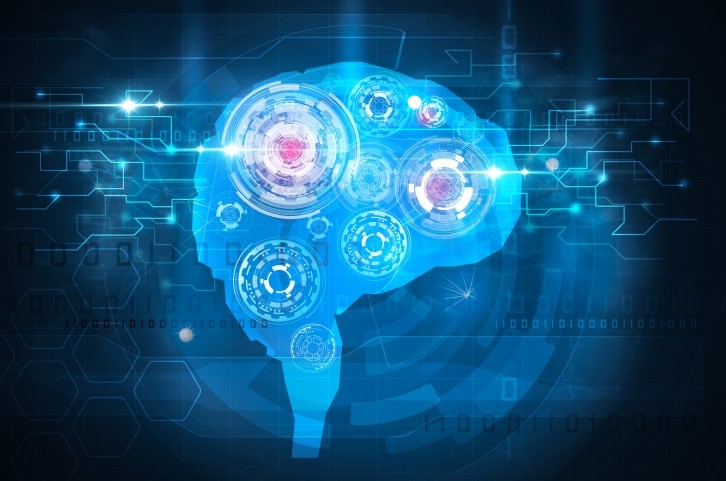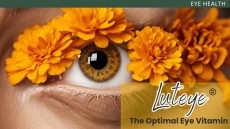One dose of saffron extract 'tones down' psychological stress response, researchers report

The study is the first double-blind, randomised, crossover study that explores the effect of a single dose of a proprietary saffron extract (Safr’InsideTM), or its main volatile compound safranal, on the biological and psychological stress responses in healthy young men after experiencing a physically and psychologically challenging laboratory stress test (MAST), compared to a placebo group.
Exposure to stress is known to trigger a complex interplay of nervous, endocrine, and immune mechanisms. Playing a central role, the hypothalamus–pituitary–adrenal (HPA) axis is activated, resulting in an adaptative increased cortisol secretion, which can be studied via saliva samples.
Among natural alternatives to stress reducing drugs, saffron extract appears to be a promising candidate thanks to its high contents on terpenes such as safranal, crocins, crocetins, picrocrocins, and flavonoids. Rodent studies have suggested the extract may reduce the plasma levels of corticosterone in response to acute stress. Yet the effect of its isolated constituents are inconsistent.
The aim of the present randomised, double-blind, placebo-controlled, cross-over (3 arms) study was to investigate the acute effect of a saffron extract and its isolated main volatile compound, tested as synthetic safranal, on the biological and psychological responses in healthy young men.
The study reports that a single dose of Safr’Inside in healthy young men delayed the typical peak of salivary cortisol and cortisone in response to a physical and psychosocial stressor, in comparison to a placebo.
The report states: "The levels of self-perceived stress and anxiety using VAS were toned down after Safr’InsideTM and safranal administration compared to the placebo. In addition, we observed a significant effect of the saffron extract on the glucocorticoid stress response, showing a delay in the salivary cortisol and cortisone responses in participants receiving the saffron extract compared to those receiving the placebo."
Research background
The authors of the study, from Bordeaux University, France, note that only two clinical studies have investigated the biological and psychological anti-stress effect of saffron in chronically stressed adults.
The first demonstrated that women affected by menstrual distress who inhaled saffron experienced significant decreased salivary cortisol coupled with reduced self-perceived anxiety compared to those receiving the placebo.
The second clinical study showed a beneficial effect of a single dose of Safr’Inside on heart rate variability, after an induced laboratory acute stressor in healthy women experiencing low mood. The supplement was associated with reduced depression scores and improved social relationships after 8 weeks of supplementation.
The study
For the new study, twenty healthy men, aged 18–25 years, with a body mass index between 18.5 and 25.0 kg/m2 were recruited between September 2020 and December 2021 at the SANPSY Unit located in the Teaching University Hospital, Bordeaux, France.
Participants were randomly allocated to receive a single dose of 30 mg of a full-spectrum standardized saffron extract (Safr’InsideTM, Activ’Inside).
eligible participants provided lifestyle and demographic data, and their weight, height, heart rate, and blood pressure were measured. Participants were asked not to change their dietary, sleeping, and exercise habits throughout the study.
At recruitment, they performed a training session on the MAST. Saliva samples were collected before and immediately after the MAST and every 15 min for 1 h. At the end of the visit, participants were provided with sleep and food diaries and study instructions.
During lab visits, participants were give either the active supplement or placebo. Saliva samples and self-perceived stress and anxiety levels were obtained 15 min after product intake, then the MAST was administered. Finally, saliva samples and self-perceived stress and anxiety were collected after the end of the MAST and every 15 min for 1 h.
Findings
As expected, both biological and psychological parameters responded to the MAST with stressor-induced changes. The levels of self-perceived stress and anxiety using VAS were toned down after Safr’InsideTM and safranal administration compared to the placebo. In addition, we observed a significant effect of the saffron extract on the glucocorticoid stress response, showing a delay in the salivary cortisol and cortisone responses in participants receiving the saffron extract compared to those receiving the placebo.
With regard to salivary cortisol, the participants receiving the saffron supplementation had a higher Tmax for salivary cortisol compared to placebo in response to the acute stress (p = 0.04, Tukey’s test) and had a longer salivary cortisone Tmax compared to placebo in response to the acute stress (p = 0.04, Tukey test).
What's more, the subjective anxiety response was lower in the saffron extract and safranal groups compared to the placebo group.
The authors say the main strength of this study includes the use of both objective and subjective outcomes measures to assess the anti-stress effect.
Noting limitations of the study, the authors state they excluded women due to the influence of sex hormones and the influence of oral contraceptives on cortisol levels. The generalisability of the results to other participant demographics thus remains to be tested in future research.
Secondly, while a linear mixed model considering the sequence, period, time of collection, and treatment would have been the statistical method of choice, the restricted sample size in combination with a non-Gaussian distribution of physiological and psychological parameters, only allowed for a more basic statistical approach.
Source: Nutrients
https://doi.org/10.3390/nu15132921 (registering DOI)
"Acute Effect of a Saffron Extract (Safr’InsideTM) and Its Main Volatile Compound on the Stress Response in Healthy Young Men: A Randomized, Double Blind, Placebo-Controlled, Crossover Study"
Authors: Pouchieu, C.; Pourtau, L.; Brossaud, J.; Gaudout, D.; Corcuff, J.-B.; Capuron, L.; Castanon, N.; Philip, P.












